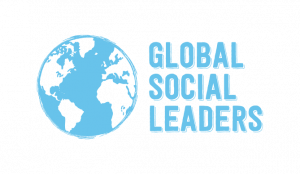We are delighted to share a blog written by Yang Iyan Moon, a student at Seoul Foreign British School who is part of a team delivering a Global Goals project for the 2018-19 Global Goals Competition.
Their project is among over 620 social action projects currently running as part of the GSL movement and we are excited to be supporting them to design and lead positive social change in their community.
A truly unique experience in which students can help make a change in their local community.
Project Overview
We’ve noticed that in our local community (school), there is a lot of plastic waste (that often doesn’t gets recycled) and leftover food during break time (banana peels, oranges, mandarins and more) because of a student or worker’s negligence. To combat this, we’ve decided to start collecting any plastic containers from around the school, so that we can clean them and use to grow onions.
Why onions?
Ever since last year, the British school’s students have been voluntarily helping a homeless organisation (NANUMI) that provides free meals at given times. Not only can we utilize plastic waste, we can farm the onions to make a popular side dish in korea (damuji) to give out to the homeless people along with their meals, as often there isn’t enough food to give out. We get the main ingredient in damujis, white radish (or “mu” in korean) from generous donations from students in our school. Students have also brought in containers (to store the damuji) and toothbrushes to give out during NANUMI so the elderly that go there can at least avoid getting cavities. As a reward, we have free dress days to people who bring in these things. Damuji also has health benefits that strengthen their immune systems.
Besides this, we’ve also started a worm farm in order to compost extra paper produced from our school and leftover fruit waste from break.
Our Journey
I believe that through the GSL Global Goals Competition, we’ve all learned how to take initiative and action. Everyone has also had different opportunities to lead on certain side projects, e.g making posters to inform students or designing lesson plans to teach little kids in our lower year about what we’re doing. This develops our leadership and collaboration skills, as for a project to work all members must be open-minded to different ideas from their peers. We’ve also developed our responsibility skills in order to complete what must be done without constant reminders or nagging from our leader or teacher.
Through this project I’ve learnt that I am not the best at time management — however, through help from other team members I’ve managed to stay on top of my work.
Our biggest challenge was definitely trying to find a suitable common time. Due to the school’s lunch system, we all have different times to eat. This only leaves time after school or break. Once again because of our variety of extracurricular activities, we were not able to find a common time. Unfortunately, break was the only time we could all get together, which was only 10 minutes at most. To maximize this time, we are relying on technology to communicate to each other and organize jobs for everyone to complete by our next meet up.
The Next Chapter
Yes! Many international schools have very similar situations as us (with the excess waste) and there are plenty of organizations around Seoul that would appreciate a helping hand. It would definitely be a unique experience for them while also getting them to develop different skills that would surely help in the future for school projects in High School.
Build your own future, one step at a time.
Don’t let climate change take that from you.
The 2018-19 GSL Global Goals Competition is now open and runs until June 2019. If you belong to one of the 700+ teams of students currently delivering a social action project as part of the competition we would love to hear from you and feature your blog and project photos on our website to inspire others.













